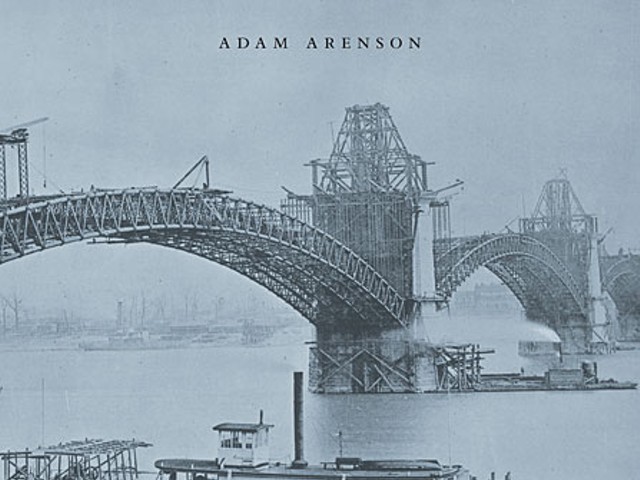For Tempest Landry, life in Harlem is made up of momentary pleasures: a wife, a mistress, enough cash in his pocket to pay for creature comforts. If there's one thing Tempest dislikes, it's to waste time standing in lines. So when he is mistaken for an armed robber and gunned down by police, the seemingly unending line (we're talking years here) at the Judgment Gate puts him in a foul mood. And when, after having finally endured that long and winding wait, he's summarily dispatched to Hell, Tempest is in a contentious mood. No way is he going to Hell. Instead he's returned to earth in order to be reminded of what a bad dude he actually is. So begins the odyssey that unfolds in Walter Mosley's The Fall of Heaven, which debuted last year in Cincinnati and is receiving its second staging at the Repertory Theatre of St. Louis.
Mosley has adapted The Fall of Heaven, his first play, from his 2008 novel The Tempest Tales. That novel might seem an ideal candidate for adaption, for its very spine is a series of conversations between Tempest returned-to-earth and Joshua Angel, one of St. Peter's bookkeepers. Joshua has been given human form so that he can be available to persuade Tempest to accept his inevitable fate. In the novel these two engage in "meandering debates over good and evil." Some of those debates — for instance, the interlude when Tempest asks, "If America was a man, would he make it past Peter's threshold?" — are provocative. But as a novice playwright, Mosley does not yet appreciate the distinction between dialogue and action. It's not enough to merely eliminate meandering talk; you also have to dramatize.
We learn that when Tempest was returned to earth, he had to steal money in order to live — but we don't see that happen. We're told he saved the life of a woman who needed urgent medical care — but we don't see it. We don't even see Tempest gunned down by the police. Despite the humor and energy that Bryan Terrell Clark brings to his role, Tempest remains a largely passive character. Joshua (Corey Allen) is another matter. Much like his predecessor Dudley, the angel portrayed by Cary Grant in the 1947 film The Bishop's Wife, we see Joshua being tempted by the odd stirrings of physical love that inform humanity. During the course of the evening, we watch Joshua evolve; we share his journey.
The plot becomes more nuanced when Tempest returns from a visit to New Orleans accompanied by his new best friend, the Devil (an appropriately cool — and very white — Jeffrey C. Hawkins). Although that friendship is short-lived, it is not helpful when playwright Mosley inserts the "N" word into Satan's denunciations of Tempest. The novel reads quite effectively without that word; here its inclusion seems gratuitous, a cheap stunt that boomerangs. At the opening-night performance, each time the word was uttered you could feel a cold shiver pass through the auditorium, as if viewers instinctively knew how unnecessary it was.
Here's another change between page and stage: The novel addresses "the battlefield of black America" that Tempest inhabits, but the play does not. Much of his anger has been defused, perhaps to make him more likable. The singular voice Mosley brings to his novel is muted onstage.
The Rep production, which has been directed by Seth Gordon, is amiable enough. Yet certain odd choices have been made, beginning with the stolid set design of a Harlem street that tells us almost nothing about Tempest's world. The occasional extras who pass across this street are used to little effect. Then there is the curiously uncommanding voice of St. Peter. When he pronounces to Tempest, "This is your final judgment," he sounds like Don Pardo announcing prizes on The Price Is Right. Anybody could bluff this guy; no surprise that Tempest took him on.





